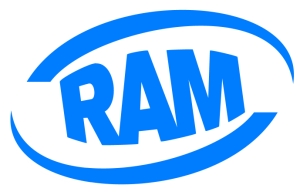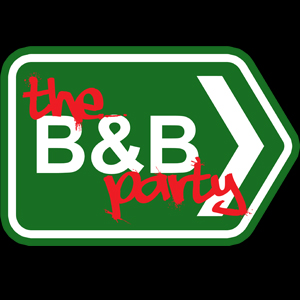The Alliance was a left-wing political party in New Zealand. It was formed at the end of 1991 by the linking of four smaller parties. The Alliance positioned itself as a democratic socialist alternative to the centre-left New Zealand Labour Party. It was influential throughout the 1990s, but suffered a major setback after its founder and leader, Jim Anderton, left the party in 2002, taking with him several of its members of parliament (MPs). After the remaining MPs lost their seats in the 2002 general election, some commentators predicted the demise of the party.

Libertarianz was a political party in New Zealand that advocated libertarianism, favouring self-government and limiting the power of the government over the individual. Ayn Rand's philosophy of Objectivism is a major influence on the party. Its slogan, "More Freedom, Less Government", is indicative of the party's basic policy platform. It went into recess and was deregistered by its own request in early February 2014.
The Kiwi Party was a political party operating in New Zealand between 2007 and 2011. Briefly known as Future New Zealand, it was a breakaway from the United Future New Zealand party and sought to carry on the tradition of Future New Zealand. The party was formed when MP Gordon Copeland left United Future after a dispute over support for the Crimes Amendment Act 2007. At the 2008 general election, the Kiwi Party was unsuccessful, and was not re-elected to Parliament. It did not contest the 2011 general election under its own banner, but the leaders and other members stood for the Conservative Party.

Brighton Pavilion is a constituency.

Wallasey is a constituency created in 1918 represented in the House of Commons of the UK Parliament since 1992 by Angela Eagle, a member of the Labour Party.

Brighton Kemptown, informally known usually as Brighton Kemptown and Peacehaven, is a constituency created in 1950 in the House of Commons of the UK Parliament covering the eastern portion of the city of Brighton and Hove including Kemptown and part of the Lewes District.

Hove, informally known usually as Hove and Portslade, is a borough constituency represented in the House of Commons of the UK Parliament since 2015 by Labour's Peter Kyle.
Community Group was a British political party in Doncaster, South Yorkshire, founded in 2001. The Community Group had four councillors serving on Doncaster Metropolitan Borough council in 2009. There were no Community Group councillors elected at the most recent election to Doncaster Council in 2017. The party deregistered in 2018.
Australians Against Further Immigration (AAFI) was an Australian far-right political party which described itself as "eco-nationalist" and was against positive net immigration. The party was founded in 1989 and registered in 1990. It ceased to exist in 2008. AAFI stood candidates at both state and federal level, but never won a seat. The party said it was a mainstream organisation, and sought to distance itself from extremist organisations such as the Australian League of Rights and from the Citizens Electoral Council. The far-left Green Left Weekly called it racist. In 1994, Franca Arena, then a Labor member of the New South Wales Legislative Council, denounced the party in the New South Wales parliament.

The Peace Party is a small political party within the United Kingdom which presents an avowedly pacifist and environmentalist platform.

The Residents Action Movement was a political party in New Zealand. RAM described itself as "a mass membership, broad left, grassroots movement of social change". Its national chair was Grant Morgan and its co-leaders were Oliver Woods and Grant Brookes.
The Confederate Action Party of Australia (CAP) was an Australian far right political party which first appeared in the 1992 Queensland state election. Its 12 candidates polled an average of 10.13% in the seats they contested. Overall, CAP achieved 1.4% of the statewide vote and did not win any seats. The party was registered on 10 September 1992 with the Australian Electoral Commission and contested the 1993 Australian federal election in a number of states. It was deregistered on 29 July 1993. and collapsed in August 1993 amid allegations of financial impropriety, vote rigging, infighting and fraud.

The Bill and Ben Party was a New Zealand joke political party formed in 2008 and voluntarily deregistered in 2010. The party's leaders were Jamie Linehan and Ben Boyce of the TV3 satirical sports show Pulp Sport. In the 2008 general election the party secured 0.56% of the vote, outpolling every other party not in parliament prior to the election. It gained the ninth-highest number of votes out of the 19 parties standing for election.
The Church of the Militant Elvis Party is a political party in the United Kingdom. The leader of the party is David Bishop who also goes by the nicknames of 'Lord Biro' and 'Bus-pass Elvis'. The party has six registered campaign groups: 'Bus-pass Elvis Party', 'Elvis Defence League', 'Elvis turns Green Party', 'Grumpy old Elvis Party', 'Militant Elvis Anti-Tesco Popular Front' (MEAT-PF), the 'Elvis and the Yeti Himalayan Preservation Party', and 'Militant Elvis Anti-HS2'.

Trade Unionist and Socialist Coalition (TUSC) is a socialist electoral alliance launched in Britain for the 2010 general election.
The Money Free Party is a political movement that has claimed to have parties in 16 countries: United Kingdom, New Zealand, Australia, Canada, United States, Sri Lanka, Portugal, South Africa, India, Italy, Ghana, Brazil, Argentina, Netherlands, Belgium and Romania. The party advocates for a resource-based economy, a world of free access where all work is voluntary. The party has also established resource-based economy groups in other countries around the world. It is based upon the ideals of Jacque Fresco, as advocated by the US-based The Venus Project.
Consumer Rights & No-Tolls is an Australian political party which was registered with the Australian Electoral Commission on 7 March 2016 and deregistered on 9 May 2018. It has been registered in Queensland since 2015.

The New Zealand People's Party was a political party in New Zealand established in 2015. The party has a particular focus on the rights of immigrants. Roshan Nauhria was the party's leader.

The 2020 New Zealand general election will be held after the currently elected 52nd New Zealand Parliament is dissolved or expires. The current Parliament was elected on Saturday, 23 September 2017. The last possible date for the next general election to be held is Saturday, 21 November 2020.
















